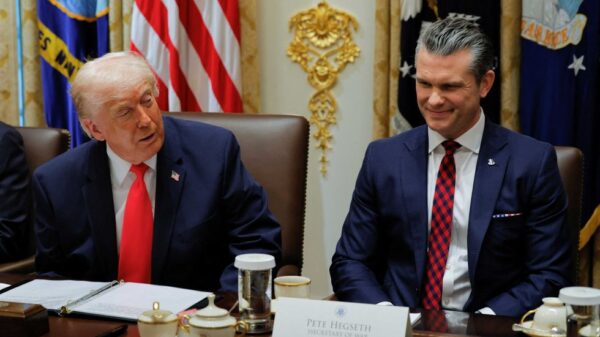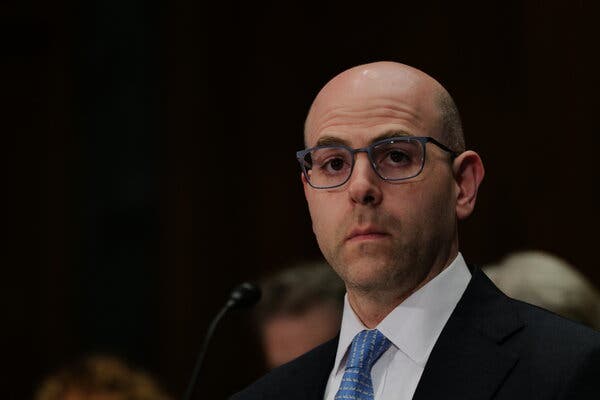UPDATE: The U.S. Senate has officially confirmed Stephen Miran as a member of the Federal Reserve Board of Governors in a contentious 48-47 vote that unfolded on Monday. This swift approval by Senate Republicans comes just days after they altered chamber rules to streamline the confirmation process for President Trump‘s nominees, signaling a pivotal moment for the Fed as it prepares for a crucial two-day meeting starting Tuesday.
Miran’s confirmation opens the door for him to make significant policy decisions, including potential interest rate cuts, amidst ongoing debates about political influence over the central bank. Critics, including Senator Elizabeth Warren, have voiced concerns about his ability to maintain independence due to his close ties with the Trump administration. Warren stated, “Donald Trump is full speed ahead in trying to take over the Fed,” highlighting the urgency and implications of this appointment.
As chairman of the White House Council of Economic Advisers, Miran has been pivotal in shaping economic policies that align with Trump’s agenda, including his controversial global tariffs. Miran’s position at the Fed, however, raises alarms among Democrats and some economists, who worry that his dual role could lead to conflicts of interest and political interference in monetary policy.
In an unprecedented arrangement, Miran plans to only take a leave of absence from his position at the White House, creating further skepticism about his commitment to the Fed’s independence. His critics argue that he may struggle to make tough decisions that could affect Trump’s political standing, particularly in light of the Fed’s recent efforts to manage inflation.
During his confirmation hearing, Miran sought to reassure lawmakers of his dedication to the Fed’s mandates, promising to make decisions based on economic analysis rather than political pressure. Yet, his past criticisms of the Fed under current Chair Jerome H. Powell and his contentious proposals, like the Mar-a-Lago Accord, have raised eyebrows about his suitability for the role.
Miran’s term at the Fed is set to run through January 2024, but his influence may extend beyond that, especially as Trump contemplates further nominations, including a potential vacancy for the Fed chair in May. With the president’s aggressive strategy to reshape the central bank, the economic landscape could face dramatic shifts, particularly if Miran’s policies align closely with Trump’s vision.
Republican Senator Lisa Murkowski was one of the few dissenting voices, citing concerns over the appearance of independence at the Fed. “We want it, need it, to be that independent board… anything that would compromise even the perception of independence, I was looking at very carefully,” she stated, reflecting growing unease about the Fed’s integrity.
As the central bank embarks on its meeting this week, the implications of Miran’s appointment will be closely scrutinized. The public and economists alike will be watching to see how this controversial figure navigates the complex interplay of politics and monetary policy in the coming months.
This developing story highlights the ongoing battle over the Fed’s independence and the significant consequences for the U.S. economy. As this unfolds, stay tuned for further updates on how Miran’s decisions could impact interest rates and economic stability.






































































